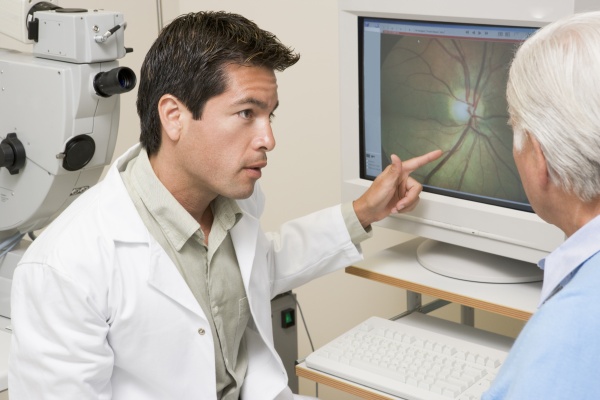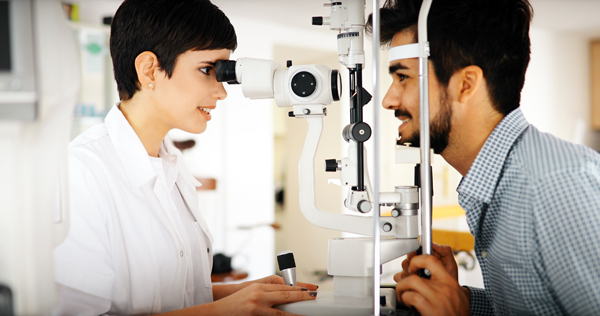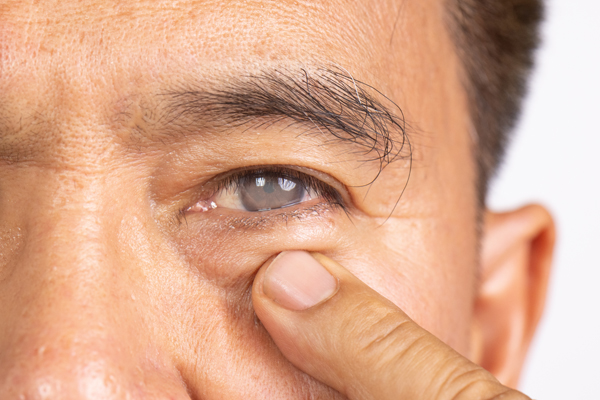Being Referred to an Ophthalmologist After a Diabetic Eye Exam

Diabetes is a prominent cause of severe vision loss, making it important for patients to have a regularly scheduled diabetic eye exam. Unfortunately, diabetes may be the cause of many vision issues that impact people at different points in their life and the sooner that is identified, the faster a treatment plan can be put in place. Most doctors advise that diabetic patients consult an ophthalmologist after a diabetic eye exam at least once a year.
Diabetic Eye Exam
An ophthalmologist does not need to be a retina specialist to provide basic eye care to a diabetic patient. During a routine ophthalmological examination, the doctor can detect the alterations associated with diabetic retina disease (also known as “retinopathy”). The blood arteries are most affected by these alterations. There might be minimal bleeding or hemorrhaging, aneurysms, scarring, or inadequate blood flow in some regions. If a general ophthalmologist notices a problem with the retina, they will refer the patient to a retina specialist.
Diabetes is a condition that affects the body’s capacity to generate the insulin hormone, resulting in high blood glucose levels (sugar). Eye issues such as impaired vision, cataracts, glaucoma, and diabetic retinopathy can all be caused by having high blood sugar levels for a long time.
Diabetes frequently causes damage to the tiny blood vessels in the retina or back of the eye. Diabetic retinopathy, the most frequent cause of vision loss in diabetics, is the name for this disease. When blood vessels in the eye are exposed to high blood glucose levels for an extended length of time, diabetic retinopathy develops. The walls of the blood vessels in the eyes get weaker as a result of this. Having diabetes and prolonged high blood glucose exposure increases the chances of developing this disease.
Diabetic eye disease is no longer a blinding illness if diagnosed early. Medical professionals can now avoid vision loss and, in some circumstances, correct certain diabetes abnormalities in the retina by detecting them early and treating them promptly. The ophthalmologist will educate their patients about diabetes and how it impacts their vision.
They will try to discover methods to optimize blood sugar and blood pressure control by collaborating with the primary care physician, endocrinologist, and the patient themselves. These two risk factors, as well as others, are something patients can control. The objective is to keep them seeing well and enjoying healthier lives with proper guidance. Patients diagnosed with diabetes need to get frequent diabetic eye exams so the doctor can catch issues like diabetic retinopathy early and preserve their eyesight.
The purpose of the diabetic eye exam
Regular eye exams are recommended for anybody with diabetes. This allows the ophthalmologist to check for abnormalities in the retina’s blood vessels, which might suggest diabetic retinopathy. During a diabetic eye exam, the doctor will take the patient’s medical and visual history and have them (the patients) will read an eye chart.
The doctor will then use a tool called an ophthalmoscope to examine the retina in the back of the eye. Patients will most likely get medications to dilate their pupils so the doctor can examine their retina using a slit lamp. Fluorescein angiography, a test that can identify changes in the structure and function of the retinal blood vessels, is one option. The doctor will also examine the eyes for cataracts and glaucoma during a diabetic eye checkup.
Final note
An experienced ophthalmologist can assist if you have been diagnosed with diabetic retinopathy following a diabetic eye exam. To learn more, book an appointment today.
Request an appointment here: https://www.carmieyecare.com or call Carmi Eye Care at (618) 374-0513 for an appointment in our Carmi office.
Check out what others are saying about our services on Yelp: Diabetic Eye Exam in Carmi, IL.
Related Posts
Searching for the phrase "optometrist near me" often begins when one is experiencing irritated, dry, or light-sensitive eyes and over-the-counter solutions fail to provide long-term relief. That begs the question: how can prescription eye drops help? These targeted medicines act where symptoms start, on the eye surface and tear film. With a focused exam, an…
Cataract treatment often restores clarity and color, but vision continues to improve as the eyes heal. Knowing what to expect reduces worry and helps you prepare. With simple habits and timely follow-up, most people return to a comfortable, clear vision.After a patient receives a replacement for their cloudy lens, the world looks brighter and sharper.…
Eye exams can detect vision changes and maintain eye health. However, seasonal allergies can sometimes complicate the process. Redness, itching, tearing, and swelling, among other allergy symptoms, can easily skew results. By understanding the potential impact of seasonal allergies on eye exams, patients can take steps to ensure a more comfortable and effective visit with…
To keep contact lenses convenient and effective, it is important to take proper care of them, especially in the summer. Increased heat, outdoor activities, and exposure to water can all impact comfort and eye health. Following a few do’s and don’ts makes it possible to enjoy clear vision and protect the eyes all summer long.Summer…


